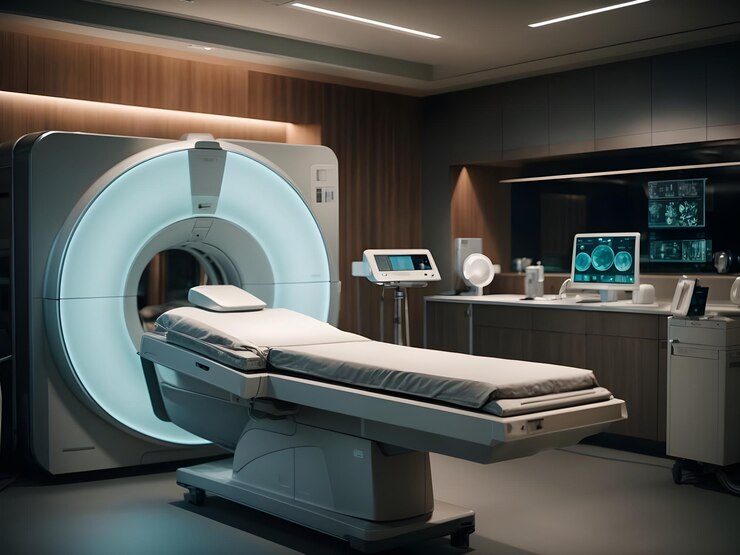Magnetic Resonance Imaging (MRI) is a powerful diagnostic tool that helps doctors see inside the body in detail. Sometimes, a special dye called contrast is used during the scan to highlight specific organs, blood vessels, or tissues. Many patients wonder, can MRI contrast make you tired after the procedure? While MRI contrast agents are generally safe, some people do report mild side effects such as fatigue.
In this article, we’ll explore why MRI contrast may cause tiredness, who is more at risk, and when to seek medical help. We’ll also provide guidance from trusted medical professionals at ER OF MESQUITE, where patients receive expert emergency care for any concerns related to imaging and side effects.
What Is MRI Contrast?
MRI contrast, often made of a substance called gadolinium, is injected into a vein during an MRI scan. It travels through the bloodstream, making it easier for radiologists to see clear images of:
-
Blood vessels
-
Brain and spinal cord
-
Tumors or abnormal tissues
-
Inflammation or infection
The contrast usually leaves the body within 24–48 hours through the kidneys. Most people tolerate it well, but a few may notice temporary effects like headache, nausea, or tiredness.
Why Might MRI Contrast Cause Tiredness?
Not everyone feels tired after an MRI with contrast, but for those who do, possible reasons include:
-
Body’s Response to Gadolinium
Some people are sensitive to contrast agents, and their immune system may respond with mild fatigue. -
Dehydration
MRI contrast is removed from the body through urine. If you don’t drink enough fluids, your body may feel sluggish as it works to flush out the dye. -
Stress and Anxiety
The MRI process itself—lying still in a confined space—can be stressful, and stress often leads to feeling drained afterward. -
Other Health Conditions
Patients with kidney disease, anemia, or chronic illness may feel more tired after contrast exposure because their body works harder to process the dye. -
Normal Post-Procedure Fatigue
Just like after any medical test, some patients feel tired simply from the time, effort, and mental focus involved.
Common Side Effects of MRI Contrast
MRI contrast is safe for most patients, but mild side effects may occur. These usually go away within hours:
-
Headache
-
Nausea
-
Dizziness
-
Cold sensation during injection
-
Fatigue or mild weakness
Severe reactions are rare but may include allergic reactions, difficulty breathing, or swelling. If these occur, immediate medical attention is needed.
Who Is More Likely to Feel Tired After MRI Contrast?
Certain groups of patients are more prone to experiencing tiredness:
-
Those with kidney problems
-
People who are dehydrated before the scan
-
Patients with chronic illness or autoimmune conditions
-
Elderly patients
-
Individuals prone to anxiety or panic attacks during medical tests
How Long Does Tiredness Last After MRI Contrast?
-
Mild tiredness: Usually lasts a few hours after the scan
-
Moderate tiredness: Can last up to 24 hours, especially if dehydration is involved
-
Persistent tiredness: Rare, but if it continues for several days, it should be checked by a doctor
How to Reduce Fatigue After MRI Contrast
To minimize the risk of feeling tired, follow these simple steps:
-
Stay hydrated: Drink plenty of water before and after the scan.
-
Eat a balanced meal: Having food in your system helps maintain energy.
-
Rest after the test: Give yourself time to relax and recover.
-
Avoid caffeine overload: While coffee may give short-term energy, it can dehydrate you.
-
Contact your doctor if symptoms worsen.
When to Seek Medical Help After MRI Contrast
Visit an emergency center like ER OF MESQUITE if you experience:
-
Severe or worsening fatigue
-
Shortness of breath
-
Rash or swelling
-
Dizziness that doesn’t improve
-
Difficulty urinating
Prompt medical care ensures safety and prevents complications.
MRI Contrast Safety: What Experts Say
Medical studies show that MRI contrast agents are generally safe. Less than 2% of patients experience minor side effects. Serious reactions are extremely rare. The key to safety is proper hydration, patient history review, and monitoring after the procedure.
At ER OF MESQUITE, doctors and radiology experts take extra care to monitor patients and provide support if any unusual symptoms occur after an MRI.
FAQs About MRI Contrast and Fatigue
1. Can MRI contrast make you sleepy instead of tired?
Yes. Some people describe the feeling as sleepiness or drowsiness, which is often the body’s way of resting after stress.
2. How long does MRI contrast stay in your body?
In healthy individuals, most of the contrast leaves the body within 24–48 hours through urine.
3. Can dehydration worsen fatigue after MRI contrast?
Yes. Dehydration makes it harder for the body to flush out the dye, which can lead to increased tiredness.
4. Is it safe for people with kidney disease to get MRI contrast?
Patients with kidney problems need special evaluation before receiving gadolinium-based contrast. Doctors may use an alternative or avoid it if risks are high.
5. What should I do if I feel extremely weak after MRI contrast?
Seek medical attention immediately. Visit a trusted emergency facility like ER OF MESQUITE for professional evaluation.
Conclusion
Feeling tired after an MRI with contrast is usually temporary and mild. It may be caused by stress, dehydration, or your body’s reaction to the dye. Drinking fluids, resting, and monitoring your symptoms can help. However, if fatigue is severe or lasts longer than expected, seek care immediately.
ER OF MESQUITE provides expert emergency services for any unexpected side effects or medical concerns after MRI scans. Your health and safety are always the top priority.


 :
: